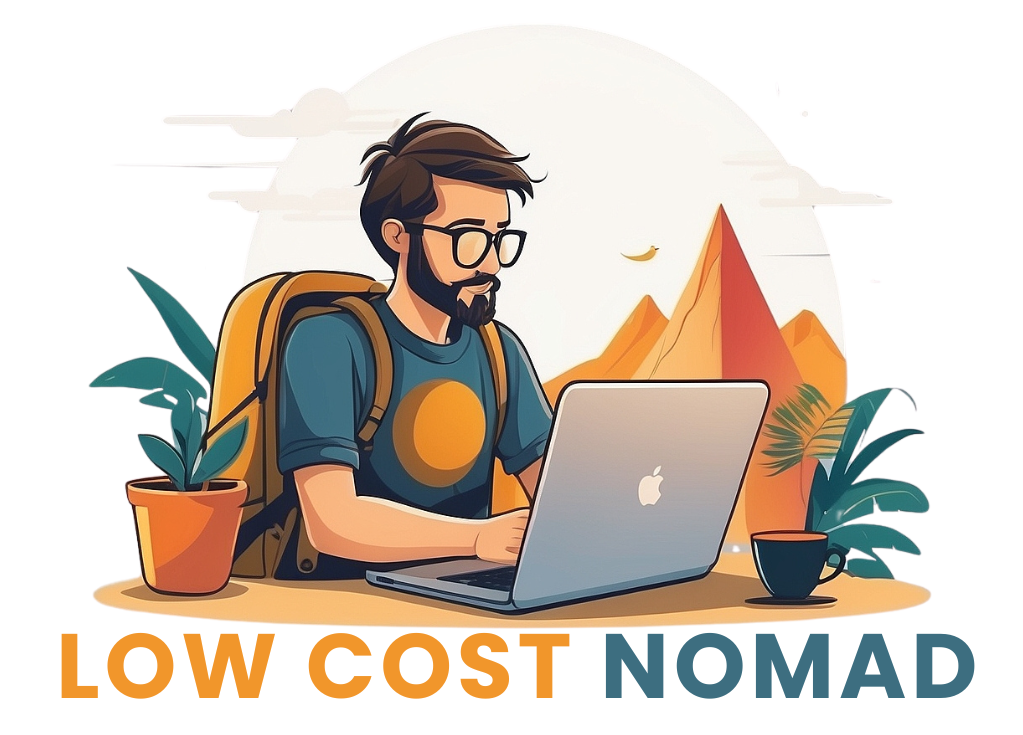How to Become a Digital Nomad: Your Guide to Working and Traveling
The idea of working from anywhere in the world, exploring new cultures, and leaving behind the traditional office setup is incredibly appealing to many. This is the life of a digital nomad – someone who uses technology to work remotely, allowing them to live a location-independent lifestyle and travel the globe. But how exactly do you become a digital nomad? It might seem like a distant dream, but with careful planning, preparation, and the right approach, becoming a digital nomad is achievable. This guide will walk you through the essential steps needed to transition from a traditional work life to one where your office can be a beach in Bali, a café in Paris, or a co-working space in Medellín.
Understanding the Digital Nomad Lifestyle
Before diving into the ‘how,’ it’s important to fully grasp what being a digital nomad entails. It’s not just a permanent vacation; it’s a way of life that combines work and travel. Digital nomads rely on the internet and technology to perform their jobs, meaning they are not tied to a specific geographical location. This flexibility offers immense freedom, but it also comes with unique challenges that require careful navigation. Understanding the realities, both good and bad, is the first step in preparing for this journey.
The Appeal and the Reality
The primary appeal of the digital nomad life is obvious: freedom. Freedom to travel, freedom to set your own schedule, and freedom from the daily commute. You get to experience different countries and cultures firsthand, meet people from all walks of life, and constantly learn and adapt. However, it’s crucial to balance this idealized view with the practical realities. Being a digital nomad means dealing with unstable internet connections, finding suitable workspaces in new places, managing finances across different currencies, dealing with visas and immigration rules, and sometimes facing loneliness or burnout. It requires self-discipline, adaptability, and resilience.
Is the Digital Nomad Life for You?
Think about your personality and work style. Are you comfortable with uncertainty? Can you motivate yourself to work without direct supervision? Are you good at planning and problem-solving on the fly? Do you enjoy spending time alone, or do you thrive on constant social interaction? While the lifestyle is exciting, it demands a certain level of independence and comfort with change. Reflecting on these questions honestly will help you determine if becoming a digital nomad is truly a good fit for you.
Finding Your Remote Work
The absolute foundation of becoming a digital nomad is having a job or income source that allows you to work remotely. This is arguably the most critical step. Without a way to earn money online, the travel part is just a vacation that eventually ends. Fortunately, the number of remote work opportunities has exploded in recent years, making it more accessible than ever to find location-independent work.
Assessing Your Skills and Experience
What skills do you have that can be done remotely? Many jobs that used to be strictly office-based now have remote options. Common digital nomad jobs include:
- Writing and editing
- Web design and development
- Graphic design
- Digital marketing (SEO, social media, content marketing)
- Online teaching or tutoring
- Virtual assistance
- Programming and software development
- Customer support (remote call centers or chat support)
- Consulting
- Translation
Think about what you’re good at and what kind of work experience you have. Can any of that translate into a remote role? Often, it’s about repackaging your existing skills for a digital environment. For example, if you’re a great administrator, you could be a virtual assistant. If you’re a good communicator, remote customer support might work.
Finding Remote Job Opportunities
Once you know what kind of remote work you’re looking for, the next step is finding it. There are several avenues to explore:
- Remote Job Boards: Websites specifically list jobs that are 100% remote. Searching these boards regularly can uncover many opportunities.
- Freelancing Platforms: Sites where businesses post short-term projects or contract work. You can offer services based on your skills. This is a common path for aspiring digital nomads.
- Approaching Your Current Employer: If you already have a job, consider proposing a remote work arrangement. Highlight how it could benefit the company (e.g., reduced office costs, increased productivity). This requires a solid proposal and a good track record.
- Starting Your Own Business: Some digital nomads create their own online businesses, selling products or services. This offers maximum flexibility but requires significant entrepreneurial spirit and effort to get off the ground.
- Networking: Connect with people who are already digital nomads or work remotely. They might know of openings or offer advice.
Finding remote work takes time and effort. Treat it like any job search: update your resume/portfolio, tailor your applications, and be persistent. Don’t expect to land the perfect remote job overnight.
Getting Your Finances Ready
Money matters are huge when planning to become a digital nomad. You need savings to start, a reliable income stream while traveling, and a way to manage your money across different locations and currencies. Financial planning is non-negotiable.
Calculate Your Startup Costs
Before you even leave, you’ll have costs. These might include:
- New laptop or essential gear upgrades
- Travel insurance
- Initial flight tickets
- Visa application fees
- Money for the first few weeks or months of living expenses abroad before your income stream is fully stable.
- Paying off debts (highly recommended before becoming location independent).
Figure out how much money you realistically need saved up before you can comfortably start your journey. Having a financial cushion is essential for peace of mind, especially when starting out.
Create a Realistic Budget
Living costs vary dramatically depending on where you are in the world. Southeast Asia might be very affordable, while Western Europe can be quite expensive. Research the cost of living in your target destinations. Factor in:
- Accommodation (renting rooms, apartments, hostels)
- Food
- Transportation (local and international)
- Activities and entertainment
- Mobile data and internet
- Co-working space fees (if you plan to use them)
- Insurance (travel and health)
- Emergency fund
Creating a monthly budget helps you understand how much income you need to earn to sustain your lifestyle. This is a crucial step in becoming a successful digital nomad.
Banking and Money Management
Managing money while traveling involves more than just having a bank account.
- Banks with No Foreign Transaction Fees: Look for banks that don’t charge fees for using your card abroad or withdrawing from foreign ATMs.
- Online Money Transfer Services: Tools for sending and receiving money internationally can be very useful, especially if you’re freelancing.
- Multiple Payment Methods: Don’t rely on just one card. Have backup credit and debit cards from different banks in case one is lost, stolen, or doesn’t work in a specific country.
- Digital Wallets: Apps can help you track expenses, budget, and even pay for things in some locations.
Setting up your financial system before you leave will save you a lot of headaches down the road. Understanding exchange rates and how to access your funds reliably is key for any digital nomad.
Planning Your First Trip
You’ve got remote work lined up and your finances sorted. Now, where do you go? Planning your initial travel is exciting but requires practical consideration.
Choosing Your First Destination
Your first destination as a digital nomad sets the tone. Consider places that are known to be digital nomad friendly. These places often have:
- Affordable cost of living
- Good internet infrastructure
- A welcoming community of other remote workers
- Relatively easy visa processes for your nationality
- Safety and ease of getting around
Popular first stops for new digital nomads include Chiang Mai (Thailand), Lisbon (Portugal), Medellín (Colombia), Budapest (Hungary), and various spots in Mexico. Starting in a place with an established digital nomad community can provide valuable support and networking opportunities.
Visas and Legalities
Visa requirements are one of the biggest challenges for a digital nomad. Most countries have tourist visas that allow stays of 30-90 days. While some digital nomads continuously travel to stay within these limits (often called “visa runs”), this isn’t a long-term or always legal strategy depending on the country. Some countries are starting to offer specific “digital nomad visas” that allow longer stays, but these are not widespread yet and often have income requirements. You MUST research the visa rules for your passport nationality for every country you plan to visit. Overstaying a visa can lead to serious problems.
Accommodation
Where will you live? Options include:
- Hostels: Budget-friendly, good for meeting people, but might not be ideal for working.
- Airbnb or Rental Platforms: Offer more privacy and amenities like a kitchen and dedicated workspace. Good for longer stays.
- Co-living Spaces: Designed specifically for digital nomads, combining accommodation with workspace and community events.
- Hotels: Can be good for short stays but generally less cost-effective for long periods.
Booking your first few weeks of accommodation in advance can reduce stress upon arrival.
Travel Style: Slow vs. Fast
Will you move every few weeks or stay in places for several months?
- Fast Travel: Visiting many places quickly. Pros: See more countries. Cons: Can be exhausting, harder to get deep into a culture, constant packing/unpacking, potential for burnout.
- Slow Travel: Staying in one place for 1-3 months or longer. Pros: More time to experience local life, build routines, focus on work, reduce travel stress. Cons: See fewer locations in a year.
Many digital nomads find that slow travel is more sustainable for balancing work and life. It allows you to establish a routine and feel more settled, even while being abroad.
Essential Tools and Technology
Your tools are your livelihood as a digital nomad. Having the right equipment and knowing how to use it effectively is vital.
Your Mobile Office
At a minimum, you’ll need:
- A Reliable Laptop: Powerful enough for your work, lightweight for portability, and with good battery life.
- A Smartphone: Essential for communication, navigation, and often as a backup internet source (hotspot). Get a local SIM card or an international eSIM for data.
- Noise-Canceling Headphones: Crucial for focusing in noisy environments like cafes or busy co-working spaces.
- Portable Hard Drive or Cloud Storage: For backing up important files. Data loss is a serious risk.
- Travel Adapters and Power Bank: To keep your devices charged anywhere.
Connectivity is King
Reliable internet is the lifeblood of a digital nomad. Research internet speeds and availability in your chosen destination. Consider getting a local SIM card with a generous data plan. Having a backup option, like a portable Wi-Fi hotspot or knowing where the nearest cafes with good Wi-Fi are, is crucial. Always test the internet speed when checking into accommodation or a co-working space if possible.
Online Security
Working from public Wi-Fi networks can be risky. Using a Virtual Private Network (VPN) is highly recommended to protect your data and privacy when connecting to unsecured networks. Be mindful of online scams, phishing attempts, and securing your devices.
Managing Life on the Road
Life as a digital nomad isn’t just about work and travel; it’s about managing your entire life while constantly changing locations. This includes everything from staying healthy to building social connections.
Health and Insurance
Getting sick or injured abroad can be scary and expensive. Standard health insurance might not cover you overseas. You need travel insurance that specifically covers medical emergencies and potentially emergency evacuation. Research insurance providers that cater to long-term travelers or digital nomads. Also, take preventative steps: stay hydrated, eat reasonably well, and try to maintain some form of exercise routine. Find out where the nearest reputable clinics or hospitals are in your location.
Building Community
While the freedom is great, constant travel can sometimes lead to feelings of loneliness or isolation. Building connections is important:
- Co-working Spaces: Excellent places to meet other remote workers and locals.
- Meetup Groups: Look for groups related to digital nomads, your hobbies, or languages in your current city.
- Online Communities: Join digital nomad forums or social media groups to connect with people before or during your travels.
- Taking Classes: Learn a new language, cooking, or dancing – great ways to meet locals and other travelers.
Making an effort to connect with others can significantly enhance your experience as a digital nomad.
Establishing Routines and Staying Productive
Without a boss or traditional office structure, you need self-discipline to get your work done. Establish a routine that works for you. This might involve:
- Setting specific work hours
- Finding dedicated workspaces (cafes, co-working spaces, quiet corners in your accommodation)
- Minimizing distractions (social media, sightseeing during work hours)
- Taking regular breaks
Balancing work and exploring is a skill that takes time to master. It’s easy to get distracted by new surroundings, but remember that your income depends on your productivity.
Handling Different Time Zones
If your clients or team are in a different time zone, you’ll need to figure out how to manage communication and meetings. This might mean working unusual hours sometimes, which requires flexibility. Use scheduling tools to help coordinate calls.
Developing the Right Mindset
Perhaps as important as practical steps is cultivating the right attitude. Being a digital nomad tests your limits and requires mental strength.
Adaptability and Flexibility
Things will go wrong. Your internet might fail before an important meeting. Your flight could be delayed. You might get lost. Being able to handle unexpected situations with a calm and flexible attitude is essential. Don’t expect everything to go perfectly all the time. Embrace the unexpected as part of the adventure.
Resilience and Problem-Solving
You’ll need to become a good problem-solver. Whether it’s figuring out a complicated visa application, dealing with a lost bank card, or finding a replacement laptop in a foreign country, you’ll face challenges. Developing resilience and the ability to figure things out on your own or by asking for help is key.
Continuous Learning
The world of remote work and travel is always changing. Stay updated on visa regulations, best practices for remote work, new tools, and travel hacks. Being open to learning and adapting will help you navigate the complexities of the digital nomad lifestyle more smoothly.
Conclusion: Taking the Leap
Becoming a digital nomad is a significant life change that requires careful planning, preparation, and a willingness to step outside your comfort zone. It involves securing remote work, getting your finances in order, planning your travel logistics, equipping yourself with the right tools, and developing the mental toughness needed for life on the road. While the freedom to work and travel is incredibly rewarding, it’s a lifestyle that demands responsibility, discipline, and adaptability.
If you’re dreaming of becoming a digital nomad, start today. Research your desired job fields, look for remote opportunities, create a savings plan, and start thinking about where you want to go first. Talk to people who are already living this life. Break down the big goal into smaller, manageable steps. The path to becoming a digital nomad might seem daunting at first, but with determination and the right preparation, you can turn this exciting possibility into your reality. The world is waiting for your mobile office.




